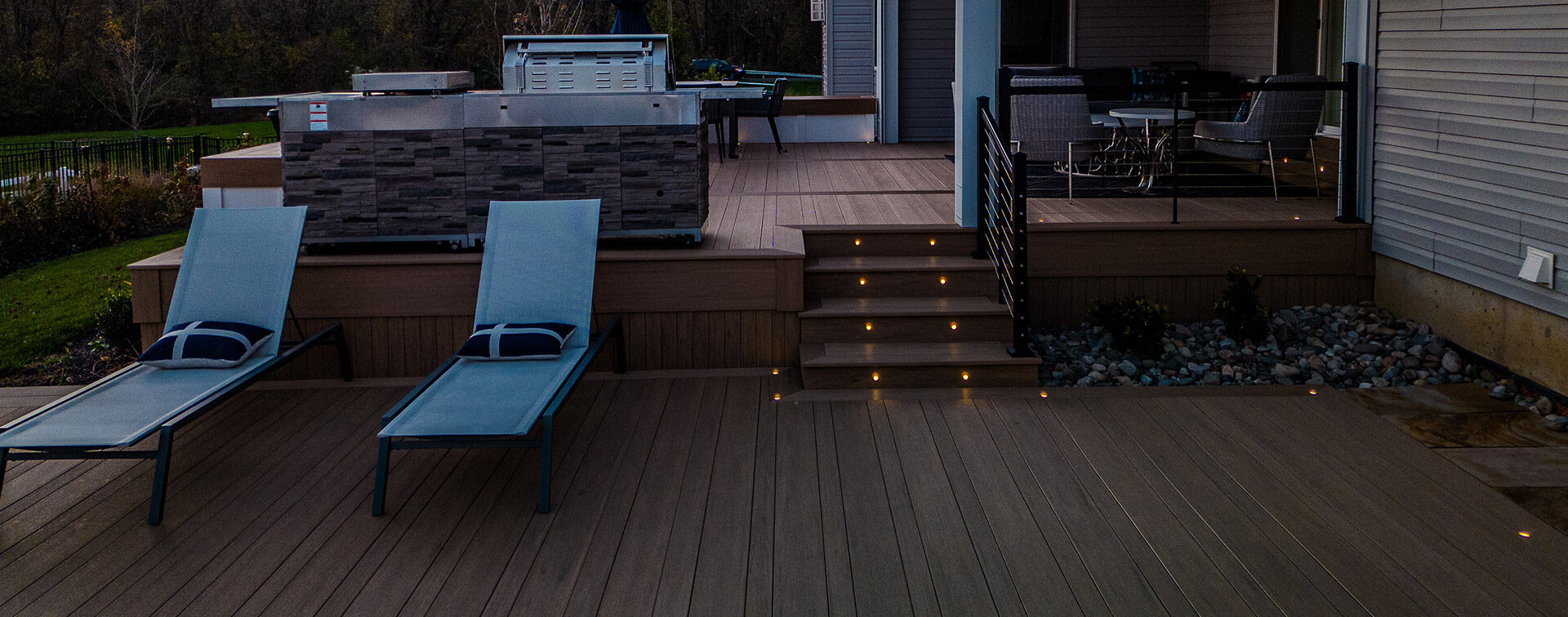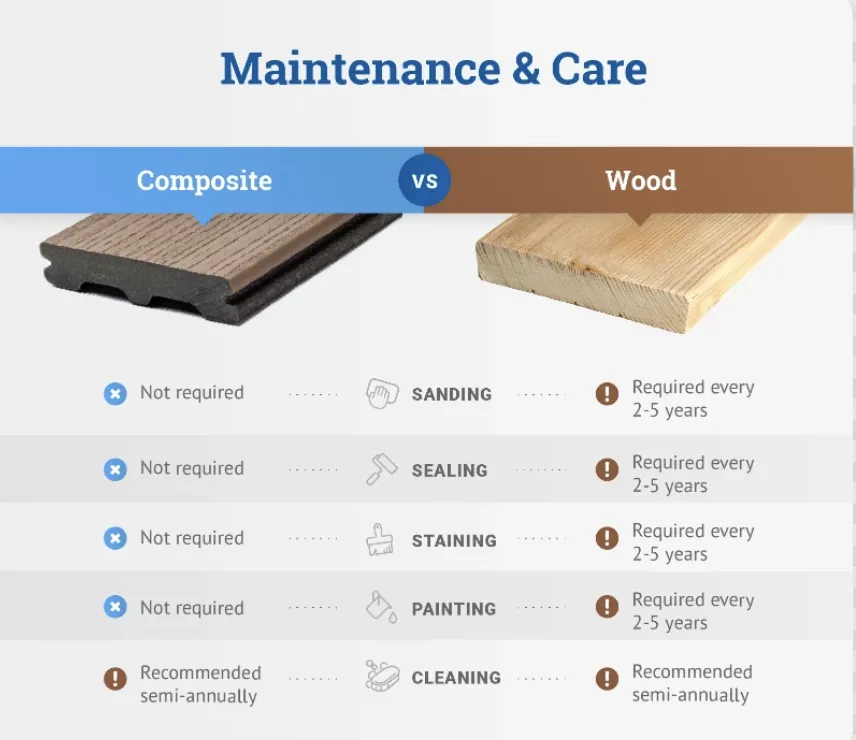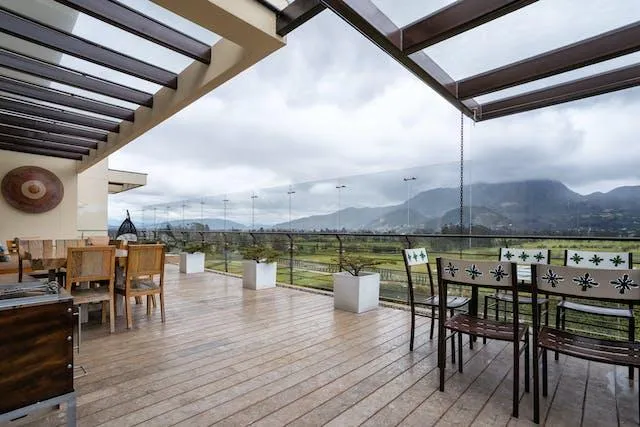In the world of outdoor living spaces, the choice between a Trex deck and a traditional wooden deck can be a pivotal decision for homeowners seeking durability, aesthetics, and maintenance ease. Both options offer unique advantages and considerations, catering to different preferences and priorities. Let’s explore the contrasts between Trex decking and wooden decking to help you make an informed choice for your outdoor oasis.
Material Composition:
Trex Deck: Trex decking is crafted from a blend of wood fibers and recycled plastic materials. This composite material offers the appeal of wood aesthetics without the drawbacks of natural wood, such as splintering, warping, or rotting. Trex decking comes in a variety of colors and finishes, providing versatility in design.
Wooden Deck: Traditional wooden decks are typically constructed from pressure-treated lumber, cedar, redwood, or exotic hardwoods like ipe. While wood decks offer a natural, classic look, they require regular maintenance to preserve their appearance and structural integrity. Without proper sealing and staining, wood decks are susceptible to decay, insect infestation, and weathering over time.
Durability and Maintenance:
Trex Deck: Trex decking boasts superior durability compared to wood, as it is resistant to rot, decay, termites, and warping. Trex boards are also engineered to withstand fading, staining, and scratching, making them an ideal choice for high-traffic areas and climates with extreme weather conditions. Maintenance requirements for Trex decks are minimal, usually limited to occasional cleaning with soap and water to remove dirt and debris.
Wooden Deck: Wooden decks demand regular maintenance to prolong their lifespan and appearance. This includes annual cleaning, staining, and sealing to protect against moisture, UV rays, and wear. Without proper upkeep, wooden decks can deteriorate quickly, requiring costly repairs or replacement. Additionally, wood decks are prone to splintering and cracking over time, posing safety hazards for bare feet and pets.
Environmental Impact:
Trex Deck: Trex decking is an eco-friendly alternative to traditional wood decks, as it is made from recycled materials and does not contribute to deforestation. By utilizing recycled plastics and wood fibers, Trex helps reduce waste and carbon footprint, making it a sustainable choice for environmentally-conscious consumers.
Wooden Deck: While wood is a renewable resource, the environmental impact of wooden decks depends on factors such as harvesting practices, transportation, and treatment chemicals. Opting for sustainably-sourced lumber or reclaimed wood can mitigate the ecological footprint of wooden decks, but it may still involve habitat destruction and chemical usage in processing.
Cost Considerations:
Trex Deck: Initially, Trex decking may have a higher upfront cost compared to wood decking due to material expenses. However, the long-term savings from reduced maintenance and replacement costs can offset the initial investment. Additionally, Trex decks may increase the resale value of a home, offering a return on investment over time.
Wooden Deck: Wooden decks are typically more affordable upfront but require ongoing expenses for maintenance and repairs. The total cost of ownership over the lifespan of a wood deck can exceed that of a Trex deck, especially when factoring in labor and materials for staining, sealing, and occasional replacements.
Conclusion:
In the debate between Trex and wooden decking, each option presents distinct advantages and drawbacks. While wooden decks offer a timeless aesthetic appeal, they require significant upkeep and may succumb to environmental factors over time. On the other hand, Trex decks offer unparalleled durability, low maintenance requirements, and eco-friendly credentials, making them a practical choice for modern homeowners seeking long-lasting outdoor enjoyment. Ultimately, the decision between Trex and wooden decking hinges on personal preferences, budget considerations, and environmental values.





